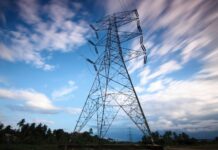Roughly 11,300 UK businesses are in scope of the government’s Streamlined Energy and Carbon Reporting scheme (SECR). It is mandatory for any companies listed on a stock exchange, and also companies and Limited Liability Partnerships (LLPs) that meet the official definition of “large”.
Businesses are encouraged to align their SECR reporting period with their company’s financial year. If your financial year is the same as the UK tax year, then now is the time to start preparing for your year-end SECR report. Here are a few key things to remember.
Dig out last year’s data
Your SECR report should include last year’s figures – unless, of course, your business has only just fallen in scope and this is your first year of reporting. This is important for comparison purposes: is your business becoming more energy-efficient over time? Are you on track to achieve year-on-year carbon reductions?Separate UK emissions
If your business is based overseas as well as in the UK, it is important to isolate your UK-specific data and disclose it separately. If your company is unquoted but falls in scope of SECR as a large company or LLP, you should report your UK energy use and the associated greenhouse gas emissions. If your company is quoted on a stock exchange, you will need to report your global emissions and the underlying energy use. But you should also disclose what proportion of both energy consumption and greenhouse gas emissions is linked to the UK. Both parts of this are compulsory, so it is important to have systems in place for collecting the overseas data and clarity on exactly where the emissions come from.Double-check your conversion factors
For some types of business, carbon dioxide will not be the main greenhouse gas reported under SECR. For example, if your business is agricultural then methane is highly likely to be more significant for you. Under SECR, all greenhouse gas emissions are recorded in terms of carbon dioxide equivalent, or CO2e. Because different greenhouse gases have a wildly different impact on the atmosphere, the process of converting to CO2e has the potential for mistakes on a big scale. Use the official government conversion factors, double check your calculations and ideally get an expert to look at the figures too.Include an intensity ratio
It is now compulsory to include at least one intensity ratio in your SECR reporting. A SECR intensity ratio gives valuable context to your carbon data. It means expressing your emissions in proportion with other business metrics. You can choose whatever metrics you like for your intensity ratio; common choices include linking emissions to turnover, profits or floor space. The metric used should be meaningful in terms of the goals of your business – so a pub chain might choose tonnes of CO2e per million pints poured, while a retailer might choose tonnes of CO2e per thousand customers.Don’t forget Scope 3
Reporting on Scope 3 emissions under SECR is currently still voluntary for companies quoted on a stock exchange, but it is strongly encouraged. Large unquoted companies and large LLPs have to report on certain specific travel-related Scope 3 emissions, and are also strongly encouraged to broaden this. Scope 3 emissions are the most difficult to calculate and control, so it may be tempting to do the legal minimum on this. But they usually account for the largest proportion of an organisation’s emissions and it is becoming increasingly unacceptable to ignore them. (In October 2022, the International Sustainability Standards Board voted that companies must disclose Scope 3.) It is sound practice to establish methods for calculating your Scope 3 emissions now, before being pushed into it by new rules. There are actually many business benefits to engaging with Scope 3. The Energy Advice Hub is brought to you by Sustainable Energy First, the UK’s leading carbon and energy consultancy. We can guide you through SECR and any other regulatory challenges. For a no-obligation chat, get in touch.
If the content of this or any of our articles has interested you, please get in touch for a no-obligation chat with our industry-leading experts at Sustainable Energy First.













